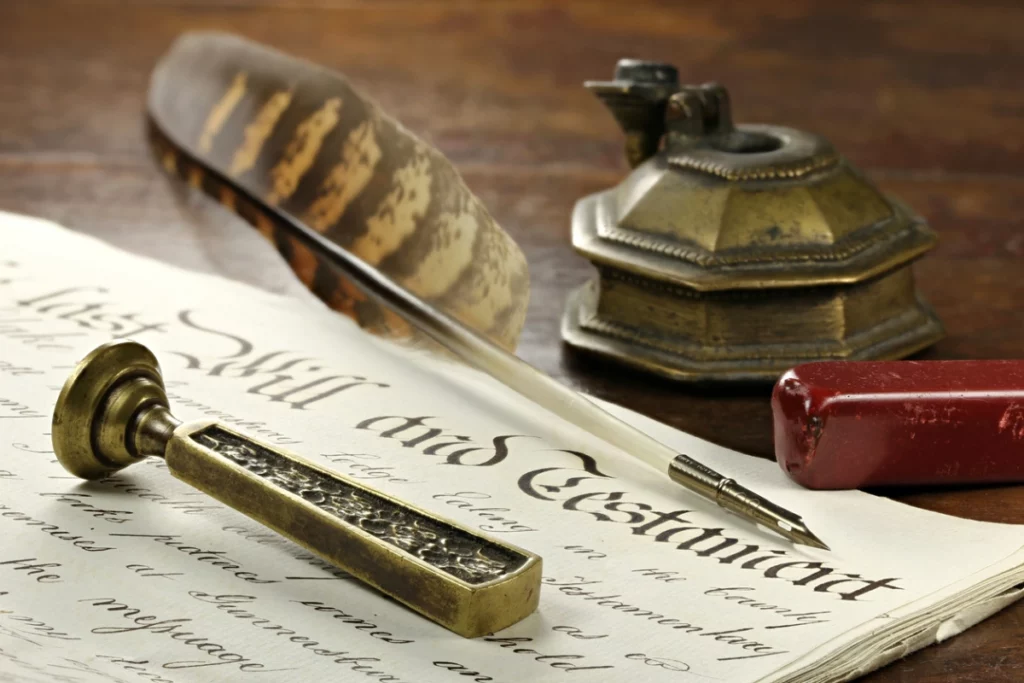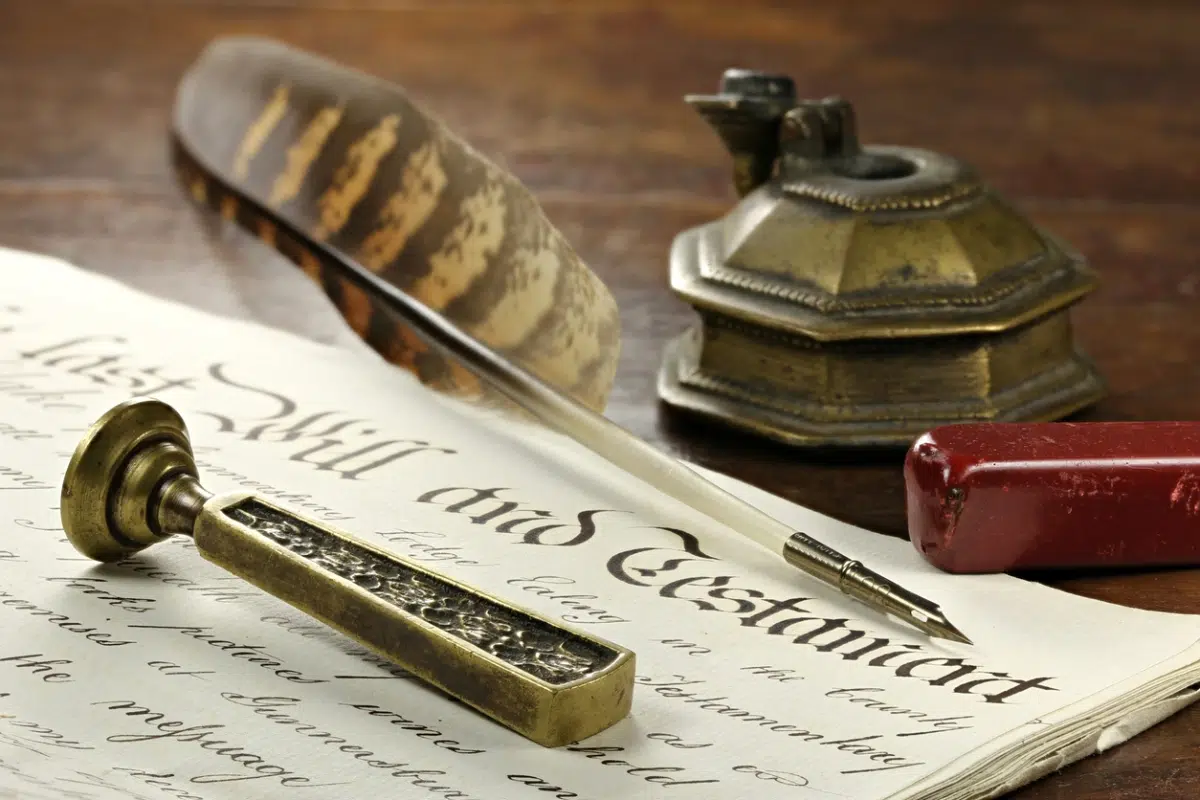
A will is far from the only available estate planning tool. However, no matter how vast or how small your estate may be, your will serves as a kind of roadmap.
When most people think of a will, they imagine a formal document completed with the help of an attorney and notarized. However, handwritten wills (or holographic wills) are legally valid in many jurisdictions, even if they have not been witnessed or notarized.
Is a holographic will legal in Texas? Here’s a closer look.
What Is a Holographic Will?
A holographic will is a will that has been handwritten and signed by the testator (the creator of the will). Generally, holographic wills don’t have to be notarized or even witnessed to be valid. As is the case with a regular will, the testator must be of sound mind at the time of creation.
Holographic wills aren’t legal everywhere. However, even if your jurisdiction recognizes holographic wills, that doesn’t necessarily mean that a holographic will is an ideal choice for estate planning.
Because holographic wills often don’t have to meet the same legal requirements (like being witnessed or notarized), they are often closely scrutinized during the probate process to ensure the testator’s intent and mental capacity meet standards for validity.
Holographic wills are commonly used as “emergency” wills when the testator cannot create a regular will. For example, if a soldier is in combat and has reason to believe they may be killed in action, they might choose to create a holographic will.
Denton Laws on Holographic Wills
Is a holographic will legal in Denton? The short answer is yes. The Texas Estates Code states that a holographic will is considered valid if the following two criteria apply:
- The will is written entirely in the testator’s own handwriting
- The testator has signed the will
Most states accept handwritten wills as valid. However, even valid holographic wills may face unexpected challenges during probate.
Advantages of Holographic Wills
Generally speaking, having a comprehensive estate plan with a formal will is preferable to having a holographic will. However, holographic wills do come with distinct advantages:
Privacy
Sometimes, a person near the end of their life wants to keep their division of assets private. They may want to avoid dealing with family arguments over who gets what, and they also might want to disinherit someone without having to deal with that person’s anger and disappointment.
Affordability
Working with an estate planning attorney to create a will is often relatively affordable. However, if someone is financially struggling, they might prefer to create a holographic will for free.
Flexibility
Holographic wills can be created just about anywhere. If the testator later decides they want to make a change, doing so is easy. They might cross out and rewrite small sections or just rewrite the will entirely.
Speed
Many people put off estate planning because they’re busy with other things. However, if someone suddenly and unexpectedly faces a substantial risk of death, a holographic will lets them outline their wishes very quickly.
Can a Holographic Will Be Contested in Denton?
You know that the answer to “Is a holographic will legal?” is yes. However, the fact that such a will (holographic or otherwise) is legally valid doesn’t mean that it cannot be challenged. During the probate process, family members may challenge the entire will or portions of it. These are a few potential challenges to a holographic will’s validity:
The Will Was Written by Someone Else
Sometimes, probate courts must verify that handwritten wills are actually in the testator’s handwriting. When heirs disagree as to whether the testator actually wrote the will or not, costly legal battles can result. The court may need to call in handwriting experts to examine the will and compare it to known samples of the testator’s handwriting.
The Will Was the Result of Undue Influence
Coercion and undue influence are a concern with any kind of will. However, because there are no witnesses to the creation of holographic wills, claims of undue influence regarding such wills are more likely.
To challenge a will based on likely undue influence, an heir would need to have reason to believe the testator was unfairly influenced by someone else. For example, imagine an elderly father has an existing, formal will in which he leaves everything to his children. He marries a much younger woman, and shortly before his death, he creates a holographic will that leaves everything to his new wife and nothing to his children.
Because the father had an existing, valid will before he created a holographic will without telling any family members, his children might be able to argue that his new wife pressured him into leaving everything to her.
Conflicts Over Interpretation
One of the primary benefits of working with an estate planning attorney to create a will is that attorneys understand what language to use to make the will clear and unambiguous. As a result, a holographic will is much more likely than a formal will to face challenges related to the interpretation of the testator’s intent or mental capacity.
During the probate process, two heirs may have two different readings of the same clause or statement. In this situation, the court would need to examine the will, possibly hear arguments from both sides, and issue a decision.
Common Mistakes That Could Invalidate a Holographic Will
Probate courts often look very closely at holographic wills to ensure validity. If the court discovers certain mistakes, the will might be declared invalid. These are some of the most common errors that lead courts to not recognize holographic wills as valid:
Including Typed Sections
To be a legally valid will, a holographic will must be entirely in the testator’s handwriting. Typing a will and signing it will probably lead to it being declared invalid. So will mixing typed and handwritten sections.
One common way people accidentally invalidate their holographic wills is by using online templates. These templates generally include fairly standard legal language but leave spaces for the testator to write their name and list their assets. Because they include a mix of handwritten and typed language, these templates cannot be used to create a valid holographic will.
Having Someone Else Sign the Will
In order to be legally valid, a holographic will must be completely in the testator’s handwriting. It also must be signed by the testator. If someone else signs instead, the will could very easily be declared invalid.
Not Accounting for All Assets
Technically speaking, failing to list all of your assets likely won’t lead to your entire holographic will being declared invalid. However, if you don’t include all of your assets in your will, the assets not mentioned will be distributed according to Texas intestacy laws. In many cases, this means that some of your assets won’t be distributed the way you wanted them to.
For example, imagine that you create a holographic will leaving certain dollar amounts to your best friends. You accumulate more money over the next few years and don’t update the will. This extra money might then go to your estranged brother because he is your closest relative, even though you likely would have wanted the money to go to your friends.
Not Destroying Old Wills
Generally, the best way to revise a holographic will is to rewrite it. However, each time you do this, it’s essential to destroy old copies of the will to avoid confusion. It’s also wise to include the date each time you draft a holographic will. Failing to do either of these things could result in significant issues.
For example, imagine you create a handwritten will and file it with the court. You decide to create a new will, but you don’t add a date or file it with the court. In this instance, there’s a reasonable chance that the original will (the one filed with the court) will be upheld as the “real” will.
Do You Need to File a Holographic Will With the Court?
Legally speaking, you aren’t required to file your holographic will with the court. However, doing so may be advantageous if you’re concerned your loved ones may not remember where your will is located. If you choose not to file your will with the court before your death, make sure you keep your will in a safe place (like a safe) and that your loved ones know where to find it.
If you don’t file your will with the court before death, one of your loved ones will need to file it with an application for probate and your death certificate.
Alternatives to a Holographic Will for Stronger Estate Planning
Is a holographic will legal in Texas? While Texas is one of many states that recognize holographic wills, handwritten wills often are not the best choice when you’re trying to create a solid estate plan.
If you are committed to the idea of a holographic will, you may want to consider having it witnessed and notarized. These steps can go a long way toward proving the will’s validity in probate court. However, these alternatives are worth considering:
Formal Wills
Because handwritten wills generally face added scrutiny in court, there’s a reasonable chance that your assets might not ultimately be distributed according to your wishes.
Formal wills, or wills created with the help of a lawyer, are not immune to challenges. However, they are much more likely to stand up in court.
Trusts
A trust is an estate planning tool you might consider. Trusts are usually created in addition to (not instead of) wills. However, they may help keep your assets out of probate court and otherwise offer flexibility when it comes to asset management.
How Denton Legacy Planning Can Help
In Denton, Texas, holographic wills are a valid way to specify how you want your assets distributed. However, because handwritten wills can create complications for your loved ones after your death, they often are not the best choice when you’re creating an estate plan.
The team at Hunter Sargent, PLLC, is committed to developing custom estate planning strategies to preserve your legacy and grant you and your family peace of mind. We can discuss your goals and help determine whether a holographic will or another type of will may be best suited to your needs. Get in touch with us today to schedule a consultation!



